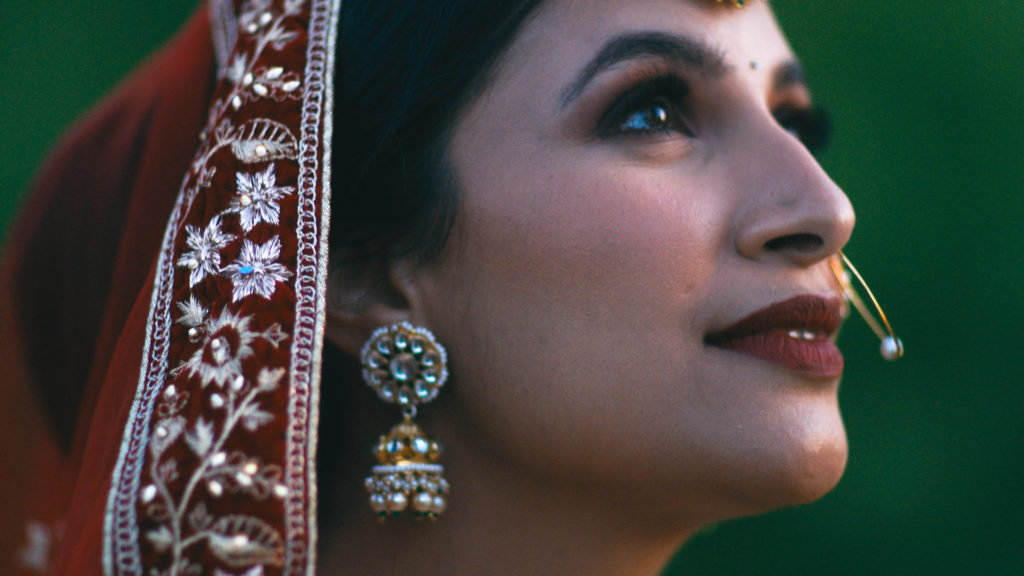
When COVID hit, I was living downtown Toronto and I had my whole year planned out.
Suddenly, all my plans changed. I moved back to my hometown of London, Ontario, and thought I was staying for a couple of weeks. It’s been more than a year now. I’m lucky that I continued to work in film and television, but I really missed singing and performing opera.
[AtG Artistic Director] Joel Ivany approached me with this role in Sāvitri and it just seemed like a perfect fit. I was so stoked! Over the last couple of years I‘d worked on stories from the Mahābhārata with a Canadian theatre festival. I thought, “Wow, more epic Hindu stories are coming at me— I love immersing myself in these powerful Indian stories.”Savitri is a goddess, and daughter of the solar deity.
In fact, her name means “Ray of Light.” It was fascinating getting to know Sāvitri and her story – she’s a strong, intelligent woman who is righteous and stands up for what she believes in. Her story captures some of the wisdom and lessons learned from this COVID era— truly, all that really matters is your family, your relations and the people who you love.
Everybody has been touched by loss during this time. It really brings you back to the present moment and helps you realize that we all rely on each other. Sāvitri is powerful, brave and devoted to her partner, which is why she isn’t scared of the God of Death. For her, life is about being present, and fighting for the relationships that matter. There’s a line that Savitri sings, which really resonates with me: “Life is communion. Each one that’s living, lives for all.”
To be cast as Sāvitri is so refreshing as a performer and artist.
It’s empowering to play this goddess— because I truly believe that every woman feels like they have an inner goddess.
When I was about ten years old, I remember watching Pavarotti and Three Tenors on television… I had no idea what they were singing, but I remember how I felt watching them perform. I suddenly knew that I wanted to make people feel the way those singers made me feel watching them sing. A couple of years later I was fortunate to get an amazing vocal teacher, who instilled a love of classical music in me.
Still, when I went to watch operas, I didn’t see people who looked like me on stage— especially Indian women. Instead, I’d see a family on stage and would think: I’d never get cast in this production… I can’t be a part of this family— I’d stick out. Which led to this inner dialogue: Is the performing arts for me? Can I do it? Am I worthy? Luckily, my parents were really supportive and I found my way.
In 2007, I competed in Miss India-Canada.
There was a talent segment, and I chose to sing a classical piece. I remember being so nervous to see the audience’s reaction to classical— watching an Indian woman sing in Italian. The performance could make or break everything.
When the song ended, I got a standing ovation—it was a pivotal moment. I realized I could be myself, and express all those parts of myself that encompass my passions. Winning that competition led to being better-known in the Indian community, and beyond. I started singing at Raptors games… and it was such an honour to represent the Indian community at these types of events.
Opera is a really tough industry.
Just like Sāvitri, you have to have resilience and perseverance.
When I think of Gustav Holst, I think of his epic orchestral suite The Planets. I didn’t even know that he composed this short chamber opera based on an Indian legend. It’s so cool that Holst was passionate about Indian culture and stories. Apparently, he didn’t keep a lot of books, but when he passed away, they found Vedic Sanskrit texts at his home. Holst was fascinated by Sanskrit, and he studied it so he could translate these stories from their original language.
Recording with an incredible orchestra and filming Sāvitri is a dream come true. Everything that I’m passionate about is coming together in this production—opera, performance, film, and celebrating Indian culture. I believe a production like Sāvitri is one of the best ways to make opera accessible to new audiences… and it’s way overdue.
Thank you to Meher for contributing her artistic voice and being a part of Sāvitri. Read Meher’s bio here.
Follow Against the Grain Theatre on Facebook, Instagram, and Twitter for up-to-date news about Sāvitri.
